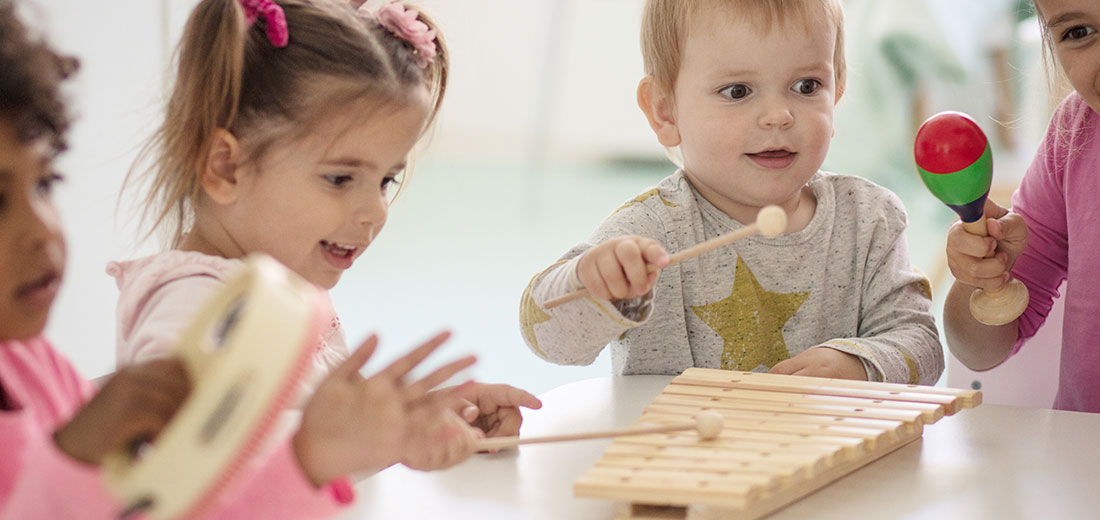From an early stage, children will habitually start identifying rhythm and even move along to the beats of music. Music provides cognitive benefits which are able to support children’s early development. In the article below, we will be sharing the benefits that your child stands to gain with exposure to music.
Music Raises Sensory Development
Akin to how textures, tastes, and colors help a child’s sensory development, music is just as beneficial. Exposing your child to music can help build new pathways between their braincells. This effect can be amplified when you link certain types of music to different activities such as dancing.
Music Improves Numeracy and Literacy
Babies are already able to hear the difference in sounds from an early age. After just several weeks, a newborn is already able to distinguish their mother’s voice from others’. Exposing your child to music helps to improve their natural ability to decipher words and sounds. When you sing nursery rhymes to your child, they will be able to identify sound patterns and eventually learn through repetition. Listening to music also helps children to anticipate what is about to come up next upon hearing the melody.
Music Lifts Moods
Some parents sing lullabies when rocking their children to sleep or when calming them down. Music is naturally soothing and it can also lift your child’s spirit. The rhythm of the music plays a part. To lift your child’s moods, play a music with a faster tempo. Try one song at a time to learn which song works best at lifting your child’s moods. Not all songs that you find soothing are suitable for your child.
Music Improves Coordination
If your child does not understand song lyrics just yet, that does not mean they cannot move to the rhythm. You may have already noticed that your child dances as soon as a certain song is played. This shows just how much music improves a child’s hand and feet coordination. Though the dance steps may be small, but the movements encourage their gross motor skills. As they grow, you will begin to notice your child taking bigger steps and coordinating their hands and feet on their own.
Music Improves Vocabulary
During the initial stage, your child may show a lack of interest in music. Do not be discouraged as there are plenty of songs to try out. Play several different songs to find the ones that your child prefers. What they enjoy listening to will help them identify certain words found in the song even when they do not understand the lyrics just yet. They will slowly start to imitate the songs and say out some words out loud. For instance, they will know that “A is for Apple” and so on. If you would like them to be more engaged, try adding their name inside the song. They will remember the song better and learn easier.
Learning Music in Preschool
Children may be inclined to learn new dance moves and songs when they are in the company of other children. During lessons in preschool is the perfect atmosphere where children can socialize while picking up a new skill.




